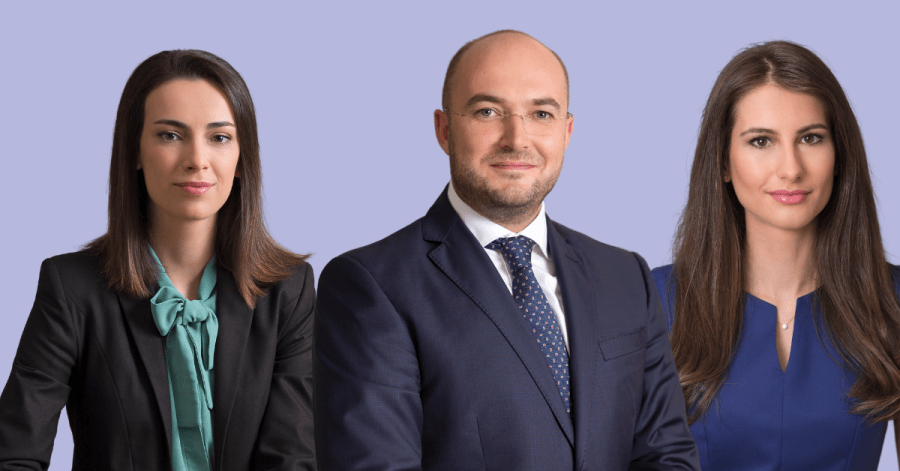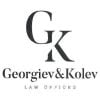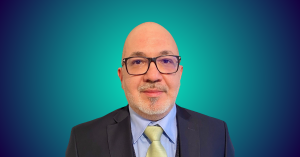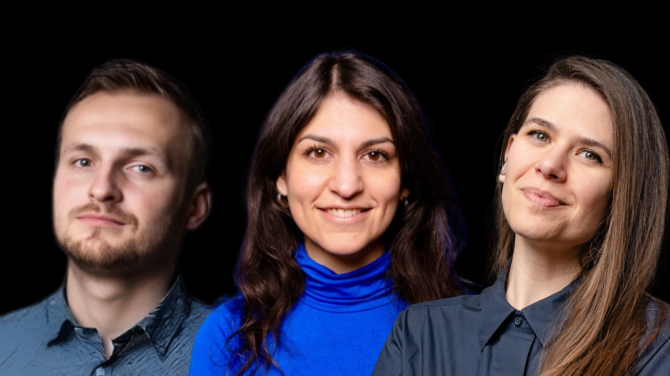“Having qualified legal counsel is essential for the daily work of a venture capital fund. Each investment, and we have over 50 of them now, takes around 100 to 120 documents that need to be drafted, checked, signed, and negotiated. The real art of venture capital law is that it combines many custom elements, which aren’t codified in national law, with very strict codified provisions and principles that need to be applied and maintained.
This means that a lawyer has to know exactly when to be flexible and when to enforce certain parts. Venture capital transactions are international by design, whereas commercial law is local, and in a country like Bulgaria, not really designed for international transactions at all,” shares for The Recursive Max Gurvits, managing partner at Vitosha Venture Partners, one of the most active early-stage funds in Bulgaria.
Most VC and private equity funds in the country are still backed by public money which goes hand in hand with numerous eligibility investment requirements and makes the legal process of closing a deal even more complex for investors and founders alike – often leading to avoidable procedural delays, not great for cash-strapped startups.
So, today The Recursive is visiting Georgiev & Kolev Law Offices, one of the leading firms specializing in venture capital law for public funds, currently serving Vitosha Venture Partners and Morningside Hill. In the past two years, their expert legal team has consulted the closure of over 65 equity and quasi-equity investments of the Funds for over 28 million euro.
Together with Managing Partner Georgi Georgiev, Senior Associate Ani Stancheva and Associate Vanina Popova, we go through the entire process of closing an investment with a Bulgarian VC fund backed by the Fund of Funds, how to prepare for a faster process, what are the main costly mistakes founders make, as well as some tips for negotiation of legal terms between VCs and startups.
The Bulgarian Fund of Funds is currently supporting 5 local funds investing in startups/ scaleups and with the new EU 2021-2027 programming period behind the corner, this number will likely increase in 2023. In practice, this means several hundred million euro to be invested in several hundred startups, and several thousand legal documents to be drafted, so we’re just getting started with the topic of legal education.
The Recursive: Why did Georgiev & Kolev Law Offices decide to specialize in venture capital law? What potential did you see in the industry in Bulgaria?
Georgi Georgiev, PhD: Our specialization in VC law was more of a collateral effect rather than a planned decision. This is because we have started working with the teams of Morningside Hill and Vitosha Venture Partners even before the establishment of their VC Funds. Our clients are managing VC Funds which are backed up by public funding (managed by the Fund of Funds in Bulgaria) so their incorporation was presupposed by a successful award of a tender procedure under the Public Procurement Act.
We started by advising the teams of both Morningside Hill and Vitosha Venture Partners on the application procedure before the Fund of Funds in Bulgaria. Following the successful awards, we have consulted the process of the incorporation of the Funds and Fund Managers, as well as the registration of the latter before the Financial Supervision Commission. Thus, it was a long journey before getting to the point of working VC Funds and VC investments. However, this process allowed us to build a relationship of trust with our clients and to really ‘learn by heart’ all specific requirements of the financial instruments (both in terms of the internal structure of the Funds and the investment conditions).
Once the Funds were established it was logical to continue consulting their investment activity. We have closed the first two investments of Morningside Hill in April 2020 (right in the beginning of the Covid pandemic) and the first investments of Vitosha Venture Partners were executed by the end of 2020. Until now we have consulted the closure of over 65 equity and quasi-equity investments of the Funds for over BGN 55M (~28M euro). This happened in less than two years. The workflow was quite intensive and we were learning in the process. With time we have built a strong VC team and indeed, we have developed a great expertise in venture capital law.
We see a great potential in the industry in Bulgaria and that gives us motivation to keep going even when the workload is overwhelming. The result of our work is visible and quite immediate – new businesses, new projects, new products, market expansions, etc. It is all happening. We have witnessed the development in VC financing in the last 2-3 years. Many VC Funds have been opened. Some are still claiming that receiving startup funding in Bulgaria is difficult. This is not entirely false because of the numerous eligibility investment requirements for the Funds backed up by public money. However, with more than 10 fully operating VC Funds in Bulgaria, we think that funding is way more accessible now.

What’s the role of lawyers when working with a venture capital fund?
Georgi Georgiev, PhD: We provide comprehensive legal services to VC Funds, which means that we consult them both in regard to their internal structure (Funds internal policies and regulations, relations with the Fund of Funds and other investors, etc.) and their investment activity (eligibility checks, legal due diligence, negotiations with beneficiary companies, draft of investment documentation, etc.). Additionally, we consult the Funds regarding issues on the implementation of their mandates as financial intermediaries of the Fund of Funds and ensure compliance with the Public Procurement Act, State Aid legislation, Regulations on ESI Funding, Directive on AIFM, etc.
We are also consulting on legal aspects regarding the management of the portfolio companies of the Funds – follow-up investments, new investment rounds, capital restructuring, reorganization, M&A, share swaps. As you could see, the work of our VC team is quite extensive.
Nevertheless, we are not working as in-house lawyers or as an extended team of the Funds. Alongside our VC practice we continue working in other fields of law – mainly real estate, litigation, competition and IP. In fact, the legal support that we provide to the Funds cannot at all be labeled as ‘venture capital’.
Being a Fund’s lawyer requires particularly good expertise not only in corporate and VC law, but also in public procurement, competition, intellectual property, etc. That is why part of the time of our VC lawyers is reserved for other clients and projects. Keeping a diverse expertise is not only good for the law firm in general but makes them better consultants for the VC industry in Bulgaria.
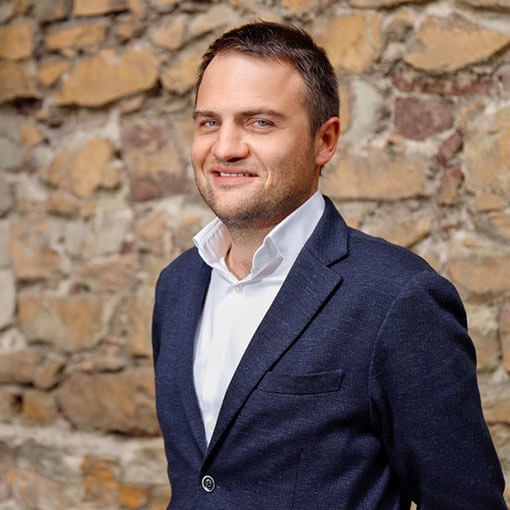
Can you walk us through the process of closing an investment with a Bulgarian VC fund backed by public money (e.g. Fund of Funds)?
Ani Stancheva: From legal perspective the main steps are the following:
A. Term Sheet
Although not legally binding, the Term Sheet is not some meaningless piece of paper. This document is the starting point of negotiations between the parties and sets reasonable expectations about the actual terms of the investment round. Therefore, it is important to correctly understand the meaning of the offering terms and to talk them over before signing the Term Sheet. If the planned investment round includes many investors, we are normally involved in the process even at that early stage.
B. Eligibility check
It is important to note that most VC Funds in Bulgaria are backed up with EU funds so their activity should be compliant with the Public Procurement Act, Staid Aid rules, Regulations on ESI Funding, etc. So the first thing we do is to do this compliance check by requesting the beneficiary company to provide evidence and declarations for eligibility. For example, whether the company falls within the definition of SME, whether it is a ‘company in difficulty’, whether it has received financial aid before, in which NACE sector it operates, does it have a close relation with Bulgaria, etc.
C. Legal Due Diligence Report
It is essential for the Funds to take an informed decision about the businesses in which they invest so the legal DDR is a must. It is focused (at the very minimum) on the review of:
- general corporate history and status of the company;
- important material contracts and agreements with banks and other creditors;
- Agreements on acquisition/disposal of material assets and commercial agreements;
- Share purchase agreements, convertible loans, and other contracts for the acquisition of share capital;
- Employment issues;
- Intellectual property;
- Litigation proceedings.
D. Internal Resolutions and Documents of the Fund
Following the mandatory compliance check and DDR we draft the Funds’ internal documents such as Eligibility Report and Investment Committee Resolution. It is important to have a finalized Cap table at this point because the Investment Committee shall take a decision as regards the number of the shares to be subscribed, the price per share, % that will be acquired in the Company’s capital, co-investors, etc. In the cases of our clients the Investment Committee Resolution shall be presented to the Funds’ investors as part of the Drawdown documentation, and it should be as specific as possible regarding the conditions of the planned investment round.
E. Submission of a Drawdown notice
In the context of publicly financed VC Funds (at least if we talk about financial intermediaries of the Fund of Funds which are co-finance with ESI Funds), the drawdown notices look like mini tender procedures. They require the submission of numerous documents and standard forms under the Operational Agreements of the Funds (these are the Agreements concluded with the Fund of Funds following the award of the public procurements). The idea is that the Fund Managers shall prove before the Fund of Funds that they have carried out all the necessary eligibility checks and they have an official Investment Committee Resolution. So in order to submit a drawdown we must double check and submit all documentation accumulated during steps B-D above. Furthermore, the Fund of Funds had the right to request additional information or explanations regarding eligibility. The drawdown process is thus way more complex than the one typically known in the VC industry.
F. Investment Agreement and Negotiations
Normally, we are trying to overlap processes so that we can manage to close the investments as quickly as possible. So, we draft the Investment Agreement (Shareholders Agreement) in parallel to the preparation of the Drawdown notice. Thus, once we submit the drawdown notice we can immediately start with the negotiations process while waiting for the feedback from the Fund of Funds. The length of the negotiations really varies from company to company, but we could say that it goes way more smoothly when the parties are respecting the arrangements of the Term Sheet and are not trying to re-negotiate terms that were already discussed and agreed upon. While it is true that the Term Sheets are not binding, they set some reasonable expectations for both parties and are key factors in the negotiation process.
G. Corporate Documents
When we have a final draft of the Investment Agreement and all its terms have been agreed upon by the parties we are preparing the documents for capital increase of the company – the new Article of Associations, Resolutions for capital increase, etc. Normally, this step goes very fast as these are standard documents. We rarely have some discussions regarding the content of the Articles of Association given the fact that it reflects the terms of the Investment Agreement.
H. Closing
Signing of the Investment Agreement and Corporate documents – our favorite part of the process. Once everything is signed by all parties, the Funds are transferring the investment amount (shares subscription price) to the company’s bank account and the capital increase shall be registered in the Commercial Register.
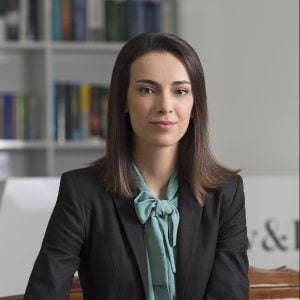
Founders often complain about the long procedure of getting approval from the Fund of Funds? Is there something they can do to prepare better and reduce the time at least a bit?
Ani Stancheva: The process indeed could be quite lengthy, but often it is in fact slowed down by some ‘minor’ errors on the part of the Founders. Normally, these setbacks tend to happen in the eligibility check and DDR phases. It happens quite too often that the Founders do not disclose all relevant information or that they submit incorrect information.
In most cases this is due to the lack of understanding of the eligibility requirements. We have made a lot of effort to facilitate the Founders in this process. We even drafted some explanatory instructions, but the truth is that some of the mandatory documentation might require the assistance of a legal consultant or the advice of an accountant. This is specifically the case when the company has a more complex capital structure or is part of a group.
Another thing that could slow down the process are last minute changes in the Cap Table, change of co-investors or addition of new investors. As already explained, by the time the Investment Committee takes its decision to approve the investment, all details regarding the investment round should be cleared out. Any change means a new Resolution of the IC and if the latter is already submitted to the Fund of Funds, it means corrections in the Drawdown notice.
Do you have any recommendations when it comes to the negotiation of legal terms between VC funds and startups?
Ani Stancheva: After more than sixty-five investments we may have lots of recommendations but more generally speaking we would say that it is important to keep in mind that the equity investment is not a donation. The goal of investors is ultimately to achieve some return on their investment and to secure some opportunities for a profitable exit. Therefore, Founders should not push back entirely against standard VC terms like Right of first refusal, Tag Along, Drag along, Liquidation Preference, etc.
There must be a rationale for any deviation from standard VC terms as they are usually expected by CEE Funds. Moreover, the Funds are being transparent about these terms from the beginning as they are clearly set out in the Term Sheets. Here comes the importance of a good legal counsel who could propose amendments to standard clauses making them more balanced and protecting the interest of the Founders. Simply, there is a difference between amendments propositions and a general statement of disagreement. In our view, the Founders should cut back the Do-it-Yourself approach and seek legal advice during the negotiations process.
What are the most frequent and harmful legal mistakes startup founders make in the pre-seed/ seed stages that make their lives difficult later when they try to scale?

Vanina Popova: The most common that come to mind are mistakes at the very incorporation of the company – wrong entity type, wrong country, wrong capital distribution between founders. Other problems might be for example the lack of assigning of IPR from founders/employees to a startup, not updating the capital structure and cap table, calculation mistakes in share purchase operations, etc. Frankly speaking, there are too many ghosts that might be found in the company’s drawers.
Can you give us an example of how costly it would be to fix such a mistake later rather than preventing it all together?
Vanina Popova: Mistakes within the incorporation might sometimes require incorporating a new entity and liquidating the existing one. Incorrect distribution of capital, for example, would require share transfers, capital increase, capital restructuring.
IPR is another problematic issue for Bulgarian startups. Most commonly we have founders and early employees who have failed to sign UP assignments at the incorporation or when they joined the company. Another scenario could be that the startup is part of a corporate group but there are no legal arrangements between the different companies as regards the IPR. Until the startup could prove ownership over the IPR it is not investible.
These are only a few traps that early-stage founders may fall into. The cost for resolving these issues may vary depending on the specific situation. However, even if the mistake is not too costly for the Founders, it may deter the potential Investors or in the best-case scenario it will slow down the whole investment process and make it even more complex than it already is.

